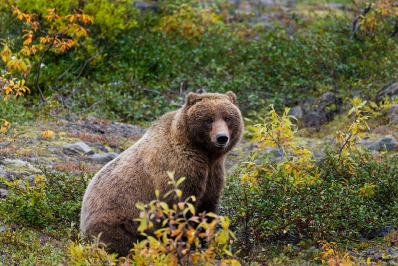Perfect verb form: grizzly bear
The Grammar Bit!
Read the six scintillating sentences opposite. At first glance, they all appear to be written in the past tense with ‘- ed’ ending verbs signalling that events and actions have already taken place.
On closer inspection, the first three sentences have events and actions that started in the past, but are either still happening now or are in some way connected to the present. We say that these sentences are written in the present perfect form of the past tense. Notice how the words ‘has‘ and ‘have‘ are used to give this additional layer of meaning.
The fourth, fifth and sixth sentences describe actions and events that started in the past and ended at another point in the past. You’ll notice how the word ‘had‘ has been used to give this additional layer of meaning. We say that these sentences are written in the past perfect form of the past tense.
With your talk partner, see if you can think of one further sentence for each form. (Your sentences don’t have to relate to the grizzly bear.)
Scintillating Sentences
Present perfect form
1) The back-scratching grizzly bears have visited the same trees again and again.
2) The curious cubs have learnt so much from watching their mother scratch against her favourite tree trunk.
3) With the remote camera traps in place, the production team has retreated to a safe distance to watch the action on their laptops.
Past perfect tense
4) The bear had feasted on roots and huckleberries before arriving at the back-scratching party.
5) In Yellowstone National Park, the grizzlies had attracted nature lovers from all corners of the globe.
6) The mother had scratched her back and was now urging the mischievous cubs to do the same.

Did you know?
Although grizzly bears do hibernate, they are not deep sleepers and will wake up quickly if disturbed.

 Sign in
Sign in